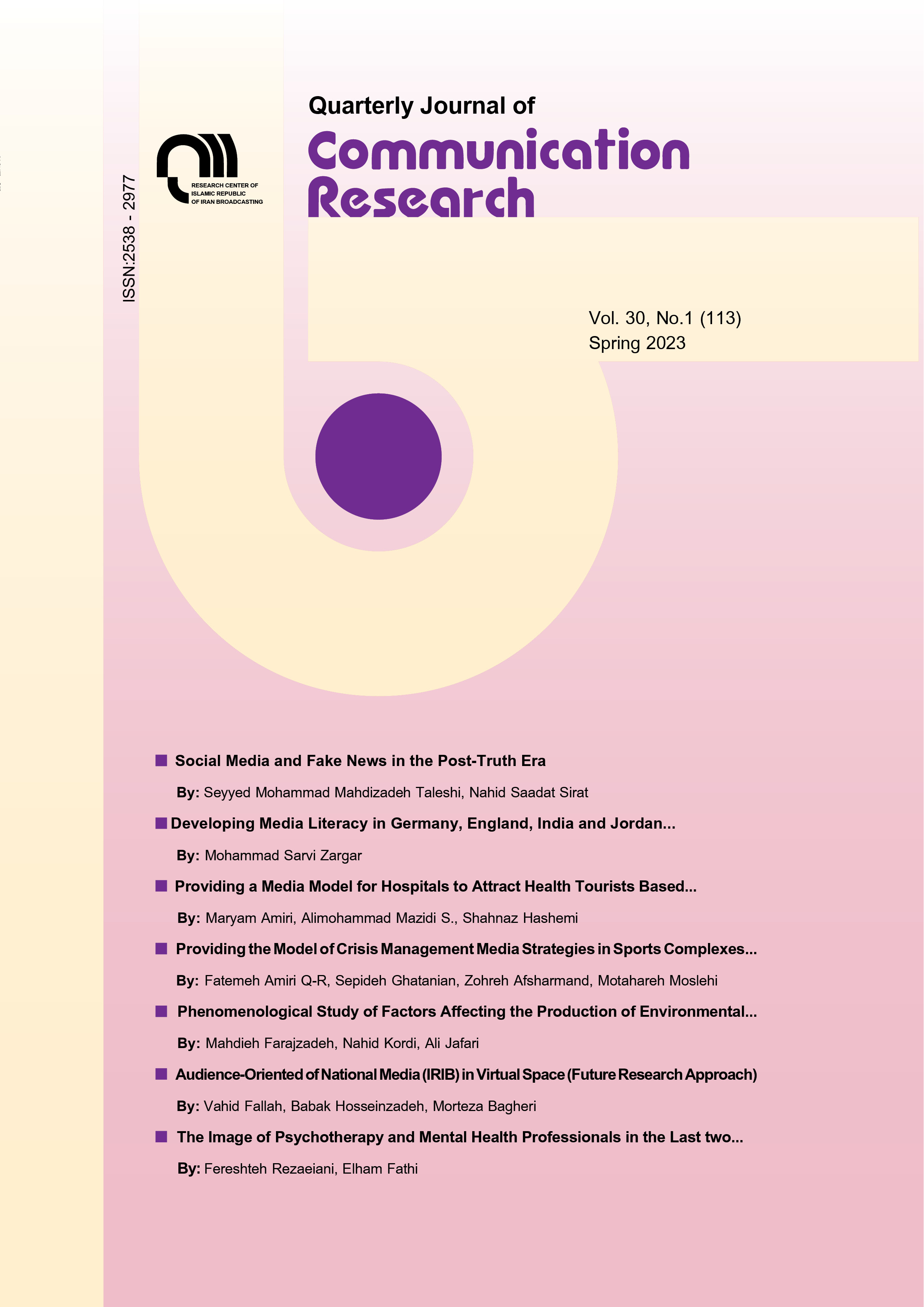Document Type : Original Article
Authors
1 PhD. In Communication Science, Department of Communication Sciences, Ardabil Branch, Islamic Azad University, Ardabil, Iran
2 Assistant Prof. Department of Communication Sciences, Tehran East Branch, Islamic Azad University, Tehran,Iran
3 Associate Professor, Department of Communication Sciences, Ardabil Branch, Islamic Azad University, Ardabil, Iran.
Abstract
The purpose of this research, relying on the phenomenological approach, is to analyze the lived experiences of environmental activists who produce content in this field on virtual social networks. The data obtained from the semi-structured interviews with 13 participants were analyzed using the 7-step Claesian method, and the results of the interviews led to the extraction of 7 main categories: environmental concern, environmental education, internalization of environmental values, environmental knowledge, environmental lifestyle, the use of virtual networks in the production of environmental content and the return effects of human intervention in the environment. Based on the obtained results, educating and observing the return effects of human intervention in nature leads to the acquisition of environmental knowledge by people, and when they have environmental knowledge, they can understand the necessity of acquiring knowledge and use it with the help of social institutions. to institutionalize The institutionalization of environmental values in people causes concerns that manifest in their lifestyles. In fact, a person who has knowledge and internalization environmental values, feels responsible for the environment and seeks to transfer his knowledge and values to others. In addition to working in real life, such people transfer their environmental knowledge by working and producing environmental content in virtual space.
Keywords
Main Subjects

